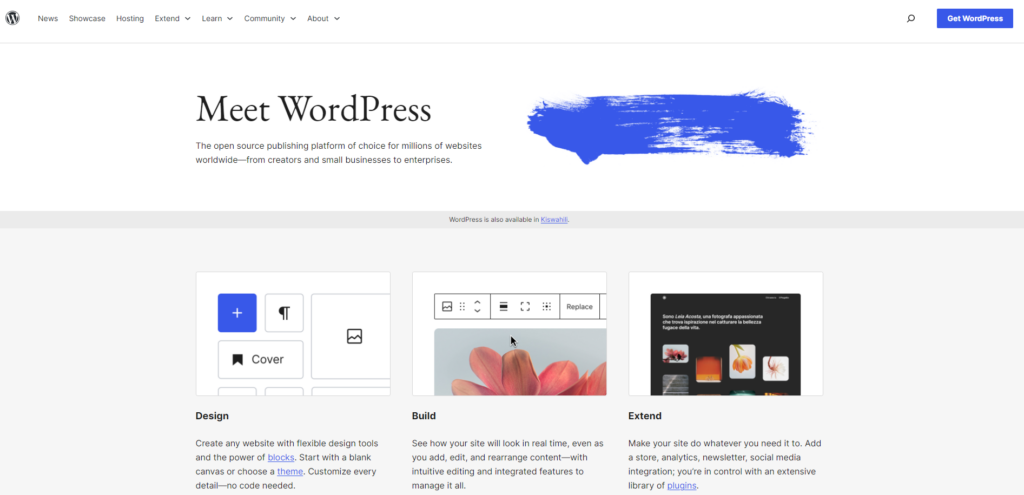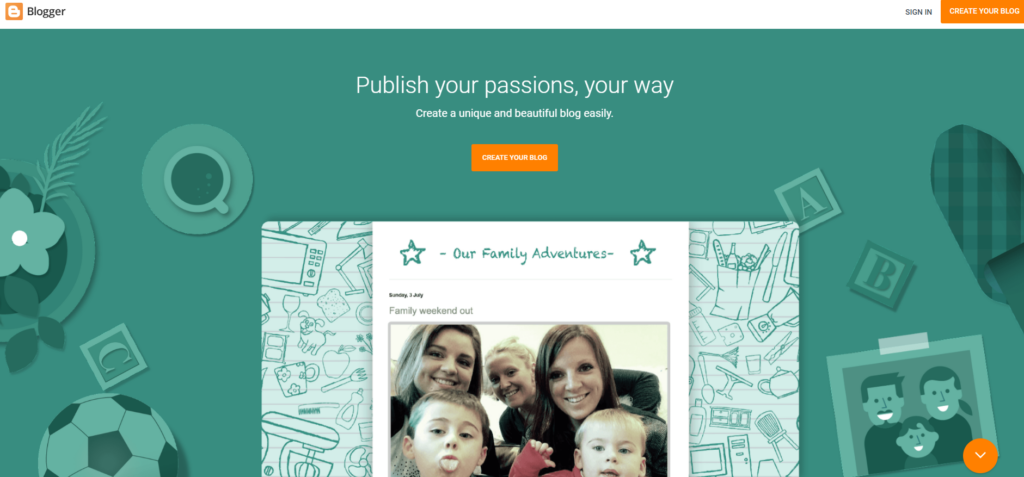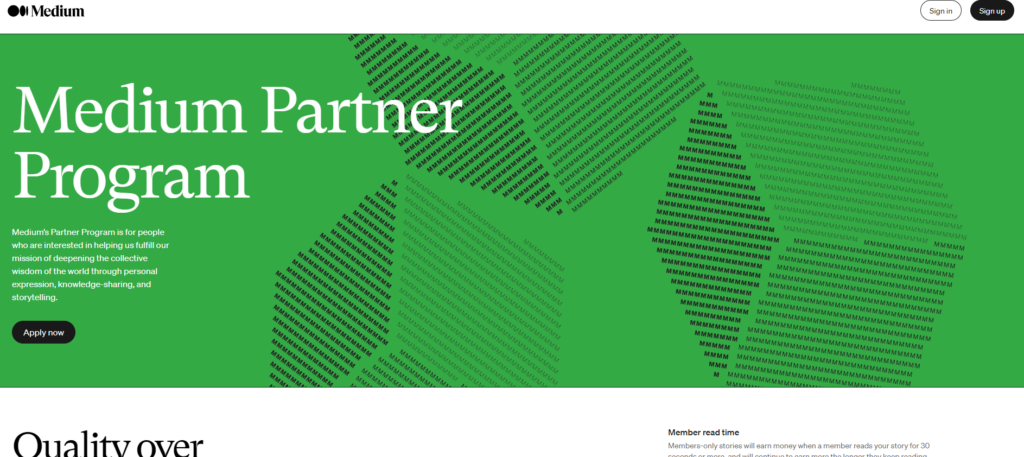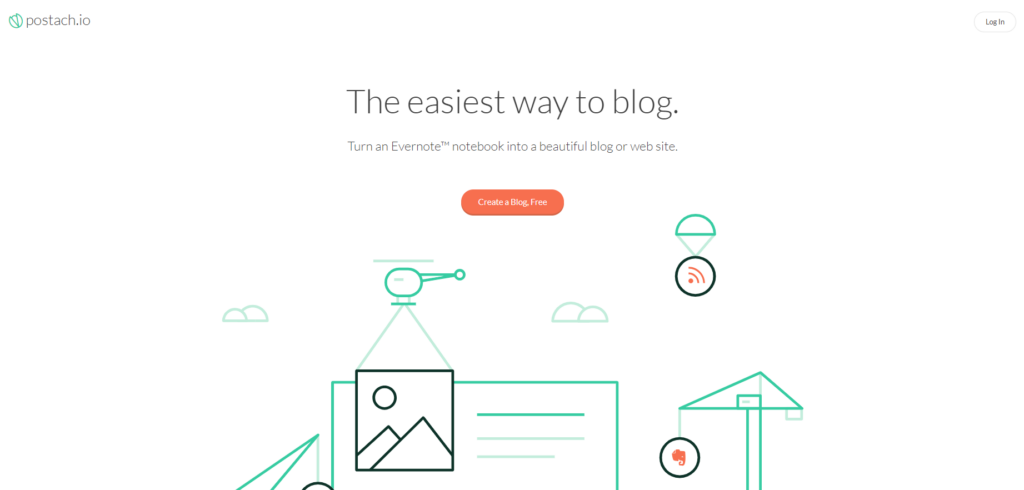Are you a writer in the UK searching for the ideal platform to launch your blog? The right blogging platform can make all the difference in sharing your writing, reaching a wider audience, and establishing your online presence. With a myriad of options available, selecting the best blogging platform can seem daunting.
This guide will delve into the most popular platforms for writers, exploring their strengths and unique features to help you make an informed decision.
Factors to Consider When Choosing the Best Blogging Platform
Before diving into specific platforms, let’s outline the essential factors to keep in mind when choosing the best blogging platform for writers in the UK:
- Ease of use: Are you a tech-savvy individual or a beginner? A user-friendly blogging platform will make setup and content management effortless.
- Flexibility: Consider the amount of control and customization you desire over your blog’s design and functionality.
- Features: Do you need specific features like e-commerce integration, advanced analytics, or powerful SEO tools tailored to UK audiences?
- Cost: Explore various pricing models, from free blogging platforms to paid options tailored to growing your blog as a business.
- Scalability: Will the platform grow with your blog as your readership expands?
1: WordPress: The Most Popular Blogging Platform

WordPress.org is an incredibly popular blogging platform, especially among experienced bloggers. Here’s what makes it a solid choice for UK writers:
- Open-Source Power: The self-hosted nature of WordPress grants immense flexibility. You have complete control over your blog’s design, functionality, and monetization.
- Infinite Customization: Access thousands of themes (templates) and plugins to design your blog exactly as you wish and seamlessly add features.
- SEO Advantage: WordPress’s structure and plugins offer powerful SEO tools, potentially boosting your blog’s visibility on search engines relevant to UK readers.
- Community and Support: You’ll find a vast WordPress community offering tutorials, forums, and resources to help with any question or customization.
However, WordPress does have a steeper learning curve, especially for beginners. If you’re not tech-savvy, the initial setup and customization might require some additional effort or even the help of a developer.
2: Squarespace: Beautiful Designs with Ease

Squarespace is a popular website builder increasingly used for blogging. It stands out for UK writers with the following features:
- Stunning Templates: Squarespace is renowned for its beautiful, modern templates, making your content shine visually.
- Drag-and-drop Interface: The intuitive interface eliminates the need for coding, simplifying blog setup and design.
- All-in-one Platform: Squarespace offers built-in features like analytics, email marketing, and even e-commerce options, reducing reliance on extra tools.
While Squarespace is user-friendly, it offers somewhat less flexibility compared to WordPress. You’ll have less customization with fewer third-party themes and plugins.
3: Blogger: One of the Original Free Blogging Platforms

Blogger (Blogspot) is one of the oldest and simplest free blogging platforms and remains a viable choice. It shines for its simplicity and ease of use.
Unfortunately, Blogger’s features are relatively limited, and you have less control over the design and functionality of your blog. It’s suitable for writers who prioritize simplicity above everything else.
4: Wix: Beginner-Friendly Website Builder

Wix also functions as a blogging platform due to its blog capabilities. Here’s how it measures up:
- Ease of Use: Wix’s drag-and-drop builder allows even beginners to create a blog without coding knowledge.
- Design Variety: Wix offers a range of templates to suit diverse preferences.
However, Wix can be limiting in terms of customization capabilities and SEO features when compared to platforms like WordPress.
5: Medium: A Community-Driven Blogging Platform

Medium offers a unique advantage – a built-in audience. When you publish on Medium, your posts can potentially be discovered by the platform’s existing readership. It’s great for writers who prioritize easy distribution of their work and less interested in building their own independent website,
However, Medium limits your control over your blog’s design and monetization. You may also face competition within its internal community structure.
6: Postach.io: For Writers Who Love Markdown

Postach.io is a minimalist blogging platform catering to writers who enjoy Markdown formatting. Let’s see why it might be right for you:
- Simple and Focused: Postach.io aims for a distraction-free writing experience and has a clean, easy-to-use interface.
- Markdown Power: If you love the efficiency of Markdown for writing, Postach.io is a perfect fit.
- Flexibility in Design: You can integrate a custom domain and have some control over your blog’s design.
While Postach.io prioritizes the writing experience, it lacks the advanced features and customization of platforms like WordPress or Squarespace.
Other Blogging Platforms for Writers Worth Considering
While the previously mentioned platforms are popular choices, a few more deserve mention depending on your specific needs:
- Ghost: An open-source content management system similar to WordPress, but with a more streamlined interface. Great for writers who want the power of WordPress but with a cleaner backend.
- Tumblr: A microblogging platform suitable for those who primarily want to share short-form content, images, and videos.
- Svbtle: This minimalist platform prioritizes a clean reading experience for your audience.
Choosing the Right Blogging Platform for Your Needs
There’s no single best blogging platform for writers in the UK – the ideal choice depends on your needs and goals. To make the best decision, ask yourself:
- Technical Expertise: What’s your comfort level with web development and managing customizations?
- Design Importance: How crucial is complete control over your blog’s appearance and design elements?
- Features and Tools: Which specific features (SEO tools, analytics, e-commerce) matter most?
- Community: Do you want a built-in readership, or would you prefer to build your own audience from scratch?
- Budget: Are you open to paid blogging platforms, or do you prefer free options?
Steps To Start a Blog as a Writer in the UK
Now that you know the best blogging platforms for writers in the UK, let’s talk about how to hit the ground running!
1. Choose Your Niche & Focus:
Brainstorm: Consider your passions, areas of expertise, and potential gaps in the UK blogging landscape.
Validate Your Niche: Research what other UK-based bloggers are writing about to assess competition and market demand.
Narrow It Down: A specific niche (e.g., travel writing focused on the UK, writing tips for UK students) establishes authority and makes it easier to attract a targeted audience.
2. Select the Best Blogging Platform:
Review Your Options: Revisit the section above about the best blogging platform for writers in the UK. Weigh factors like ease of use, customizability, SEO features, and your budget.
Free vs. Paid: If you’re just starting, a free blogging platform can be a good place to test the waters. However, paid platforms typically offer more control and features for growth.
Experiment: Many platforms offer free trials or plans. Try out a few options before committing.
3. Pick Your Domain Name & Secure Hosting (if needed)
Domain Name: This is your blog’s web address (e.g., [invalid URL removed]). Choose something memorable, relevant to your niche, and easy to spell. Check for availability on domain registrars.
Choose a Reputable Registrar: There are various domain registrars in the UK – popular choices include GoDaddy, Namecheap, or 123 Reg.
Hosting: Self-hosted platforms like WordPress require web hosting. Popular hosts include Bluehost and SiteGround. Many offer packages that bundle domain registration and hosting for convenience.
4. Set Up and Design Your Blog:
Install Your Platform: If you’ve chosen a self-hosted platform like WordPress, you’ll need to install the software on your web hosting account.
Choose a Theme: Select a template or theme that aligns with your niche and aesthetic preferences.
Customize: Design your blog with your logo, color palette, and fonts to reflect your personal brand.
5. Create Essential Pages:
About Page: Introduce yourself, your expertise, and what your blog offers to readers.
Contact Page: Provide a way for readers and potential collaborators to reach you.
Privacy Policy & Terms of Use: These pages are essential, especially if you plan to use advertising or collect reader information in the future.
6. Write Your First Blog Posts:
Publish High-Quality Content: Focus on creating valuable, informative, or entertaining posts relevant to your UK audience.
Optimize for SEO: Use keywords in your titles, headings, and body text. Take advantage of your platform’s built-in SEO tools or plugins.
Visual Appeal: Include images or videos to break up text and enhance your content.
7. Promote Your Blog:
Social Media: Share your blog posts on platforms popular in the UK, like Twitter, LinkedIn, and Facebook. Join relevant writer communities.
Networking: Collaborate with other UK bloggers through guest posts and cross-promotion.
Email Marketing: Build an email list to notify readers of new content (consider a platform like Mailchimp or ConvertKit).
8. Analyze and Improve:
Track Analytics: Use your platform’s analytics or tools like Google Analytics to monitor traffic, audience behavior, and popular content.
Optimize Accordingly: Adjust your content strategy and promotion based on what resonates with your UK readership.
Bonus Tips:
- Consistency: Publish on a regular schedule.
- Engage with Readers: Respond to comments and foster an active community around your blog.
- Patience: Growing a successful blog takes time and dedication!
Average Costs Involved in Starting a Blog as a Writer in the UK
Let’s talk money!
The costs of starting a blog as a writer in the UK can vary depending on several factors. Let’s break down the potential expenses:
Essential Costs:
- Domain Name: Expect to pay around £10-£20 per year for a domain name like [invalid URL removed] or yourblogname.co.uk. Some registrars offer discounts for the first year.
- Hosting: If using a self-hosted platform like WordPress, you’ll need web hosting. This typically ranges from £5-£25 per month depending on the provider and package. Entry-level plans are usually sufficient for new blogs.
Variable Costs:
- Platform Subscription: Website builders like Squarespace and Wix have monthly plans starting at around £10-£30 per month, depending on features needed.
- Premium Themes: While many free themes exist, premium WordPress themes or Squarespace templates can provide greater customization and cost around £30-£100 as a one-time expense.
- Plugins: WordPress plugins greatly extend your blog’s functionality. While many are free, powerful ones for SEO, marketing, etc., can have annual subscriptions, ranging from £20-£100+ per year per plugin.
- Stock Images: If you don’t take your own photos, you might need to purchase stock images, costing £1-£10+ per image.
Optional Costs (for Later Growth):
- Email Marketing Services: Platforms like Mailchimp have free plans with limits on subscribers. As your list grows, you’ll need paid plans starting at around £10-£30+ per month.
- Advertising: To boost visibility, options like social media ads or Google Adwords incur varying costs depending on your budget.
- Professional Web Design: If you struggle with design or want a highly bespoke look, hiring a web designer can cost upwards of several hundred pounds.
How to Minimize Costs:
- Start with Free Options: Choose a free blogging platform and free themes or templates. Some hosting providers offer a free domain name for the first year with certain hosting plans.
- Utilize Free Tools: Use free plugins (WordPress) or free built-in features offered by your website builder for analytics, SEO basics, and other functionality.
- DIY: Invest time in learning how to customize your blog and optimize content for SEO instead of purchasing expensive services initially.
- Start Small, Scale Up: Begin with the bare essentials and upgrade to paid plans or premium features as your blog grows and generates income.
Example Budgets:
- Minimalist Starter Blog: Free platform (Blogger), free domain name for the first year (via host), and a free theme = £0 first year, plus some hosting costs.
- WordPress Starter Blog: Domain name (£15), affordable hosting plan (£10/month), free theme = Around £135 for the first year.
- Squarespace/Wix Blog: Domain name (£15), mid-tier website builder plan (£20/month), = around £255 for the first year.
Important Notes:
- These are estimates – prices can fluctuate.
- Always factor in renewal costs for domain names, hosting, and any premium subscriptions.
- Blogging can be very affordable, especially at the beginning.
Tips for Launching a Successful UK Blog
Once you’ve chosen the best blogging platform, maximize the impact of your content with these tips:
- Define Your Niche: Establish a clear focus for your blog to attract a targeted UK audience.
- Quality Content Write in-depth, informative, and engaging blog posts relevant to UK readers.
- SEO Optimization: Utilize SEO tools (on your platform or with plugins) to improve your blog’s search engine rankings in the UK.
- Promotion: Share your content on social media and engage with other bloggers in your niche within the UK writing community.
- Consistency: Publish regularly to keep your audience coming back for more.
Conclusion
Starting your blogging journey requires carefully choosing the right platform that fits your goals, experience, and budget. Whether you prioritize ease of use, flexibility, or community support, there’s a best blogging platform for writers in the UK for your needs. Experiment, explore, and find a platform that allows your writing to reach the audience it deserves!
Q: What should writers consider when choosing the best blogging platform?
A: Writers should consider factors such as ease of use, blogging experience, available add-ons, user-friendly interface, design options, and ability to monetize.
Q: Do blogging platforms offer both free and paid options?
A: Yes, many blogging platforms offer both free versions with limited features and paid versions with additional functionalities.
Q: Can users easily embed images and videos on blogging platforms?
A: Most blogging platforms allow users to quickly and easily embed images and videos into their posts to enhance their content.
Q: Do writers need to have a high level of technical expertise to use blogging platforms?
A: No, many blogging platforms are designed to be user-friendly, allowing writers to create and manage their websites or blogs without extensive technical knowledge.
Q: Which blogging platforms are popular among content creators in the UK?
A: WordPress and Blogger are popular choices among content creators in the UK due to their versatility and customizable features.
Q: How can writers monetize their blogs on blogging platforms?
A: Writers can monetize their blogs by incorporating ads, sponsored content, affiliate marketing, or selling products on online stores integrated into the platform.
Q: How important is website design in attracting readers to a blog?
A: Website design plays a crucial role in attracting readers and ranking higher in search engine results, so writers should choose a platform that offers attractive design options.
Read also: